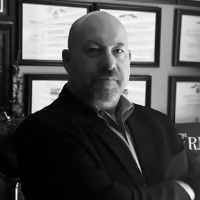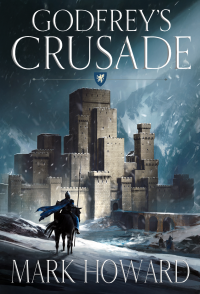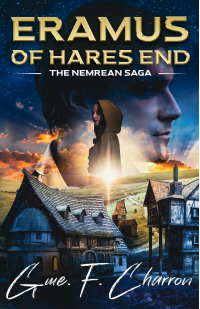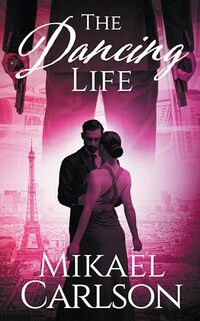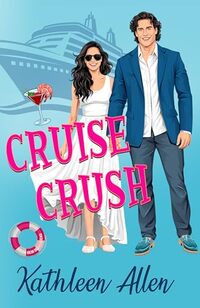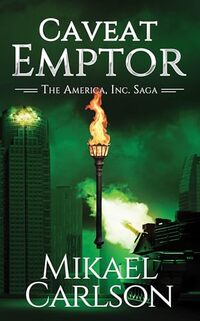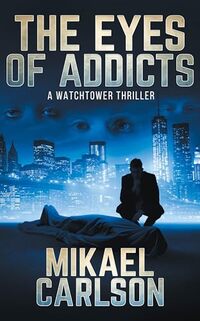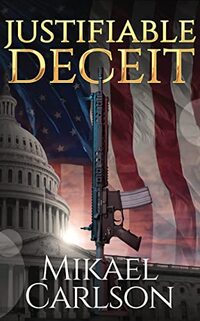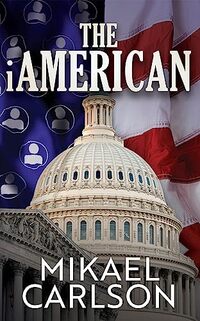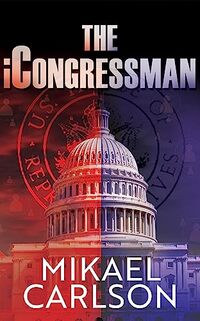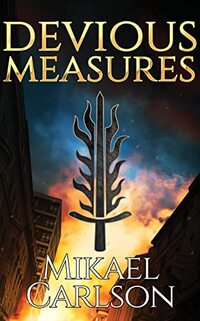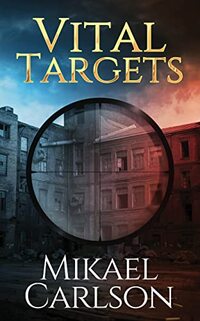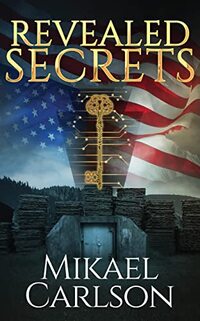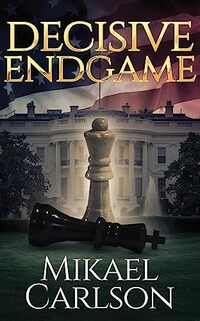Mikael Carlson Interview Published on: 22, Mar 2024
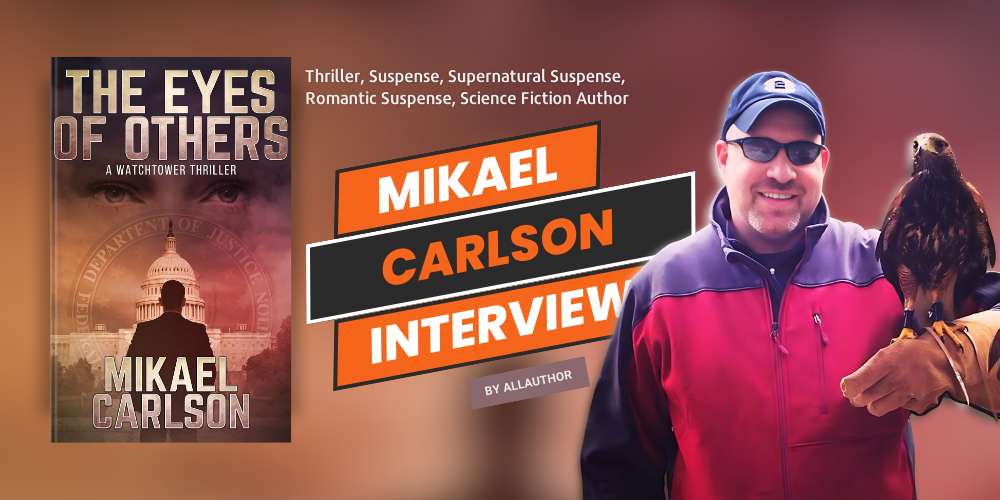 How did your experiences as a U.S. Army Paratrooper influence your writing, particularly in the realm of political fiction?
How did your experiences as a U.S. Army Paratrooper influence your writing, particularly in the realm of political fiction?
Paratroopers jump out of perfectly functioning, multi-million dollar aircraft under parachutes made by the lowest bidder and then play paddy-cake with the Earth when they land. I’m sure my hard landings knocked a few screws loose, which is the only reason I can think of as to why I write about politics in this hyper-politicized culture. More importantly, serving in the military taught me that America is worth fighting for. The idea, the people, the spirit…I was willing to sacrifice my life for all of them. Some people think that’s childish or foolish, but I feel that there is nothing more honorable than serving a cause that’s higher than yourself. America may not be perfect, but I do believe that we should all be willing to help make it “a more perfect Union.”
Could you share some insights into how your background in American history, as well as your international experiences, shape the themes and narratives of your novels?If you dig through American history, you find things like betrayal, corruption, fraud, and criminal activity have been happening since before the birth of our nation. In fact, they have happened since civilization started. In some cases, it was worse back then than it is today. Our modern access to information makes it feel so much worse. So, there is a lot to draw from and incorporate as themes for my novels. It is not a uniquely American problem. Traveling introduces me to new cultures and differing styles of government. There is little doubt that some of my future novels will have a more international flavor.
What inspired you to transition from a career in the military to becoming an author?There isn’t one singular thing I can point to as an inspiration. I began writing screenplays back in 2007 because I had stories that I couldn’t get out of my head. Not much ever came of them. My wife is a reality television junkie, and I despise the genre. Having had enough of watching those shows, I announced to her that I was going to write a novel. The typical process is to adapt screenplays from books. I did it in reverse by converting the screenplay of The iCandidate into a novel. It was going to be a one-time thing until I thought of a sequel. That book had a bit of a cliffhanger, which required a third. It was off and running from that point forward. Fun fact - whenever I mention a reality show in any of my novels, it was what she was watching on television when I wrote that chapter.
Your novels often tackle complex political issues. How do you balance portraying these issues accurately while still crafting an engaging fictional narrative?Simple – it’s all about the story. My characters have political perspectives, and they may or may not be ones that readers subscribe to. The novels I write are told through their eyes, not mine. My goal is not to pontificate or tell people how to think about issues. Characters will espouse their viewpoints, but other characters will counteract that. A good example is Tierra Campos and Oliver Jahn’s diametrically opposed views of cancel culture in Vital Targets. Pulling this off requires a lot of research and a plot that sets the two viewpoints against each other. Then, the characters make decisions that determine where the story goes, and that creates the needed tension to make it engaging.
What is your process like when conducting research for your novels, especially when delving into historical events or political landscapes?The historical part is easy. Whenever it is relevant or is an integral part of a character, like Michael Bennit being a social studies teacher, it is just a matter of searching through records or research online to incorporate the details. The political landscape is a little trickier, especially when dealing with modern politics. It requires a deep understanding of the political world, and much of that is done through consuming a lot of news and analysis from across the political spectrum. That gets married with a fundamental understanding of government and political processes and then sprinkled with conspiracy theories. All this feeds into character development and their arcs in these stories. So, I do a lot of reading and watch a lot of commentaries to hone my understanding of the world.
Can you walk us through your journey to becoming an award-winning author? What were some of the challenges you faced along the way?I don’t think my story is vastly different than what most indie authors face. When I began publishing in 2013, there were not nearly as many resources available as there are today. I struggled to find developmental and copy editors and a good, reliable book cover designer. I was even ripped off a couple of times. It was frustrating, but I have always looked at this as a journey that was bound to be fraught with highs and lows. I saw sales shrink to almost nothing and watched them soar during the pandemic. Marketing and reader discovery are constant challenges. Finding a good team, having a support structure, and tackling these challenges head-on requires perseverance and a lot of hard work. Writing is a labor of love, not a get-rich-quick scheme.
Your website mentions you are an avid traveler. How do your travels influence your writing, and have any particular destinations inspired your stories?Travel is more of a release for me than a writing influence. I enjoy experiencing other cultures and firmly believe that a person needs to get out of their comfort zone to grow as an individual. That said, I can never completely divorce myself from writing. Traveling gives me the opportunity to meet new people with fresh perspectives. My wife and I had a great four-hour conversation with a Dutch couple at a gelataria in Naples. He knew more about American politics than most Americans do. It is also a great way to people-watch, especially at airports, ferry berths, or train stations. Watching how people interact with their surroundings and with others is a key aspect of character development. So, if there is an influence, that is it. I am starting to incorporate some of the places I’ve been in my novels. The Tierra Campos sequel trilogy will go to a bunch of the places I’ve visited.
How do you approach character development in your novels, particularly in creating believable and multi-dimensional political figures?I love this question. For me, character development is the most important aspect of writing. The plot is almost secondary. A protagonist has to be likable, and an antagonist has to be despicable. Both need to have flaws or redeeming qualities to be believable because nobody is perfect. Nobody is all good or all evil. Everyone makes mistakes. Everyone makes decisions that could be perceived as ill-advised or flat-out wrong. Introducing these concepts into novels or across a series adds a lot of depth to characters, and that’s what makes characters relatable. There are many times I want my readers to think, “No, no, no…don’t do that.” I want them to be caught up in the character’s journey…to learn, suffer, and rejoice with them. This is the one thing that’s easy when writing about the political world. Politicians are flawed, and readers have already been conditioned to think of them as such. The harder part, as I learned after writing Banning Santa, is convincing them that not all political figures are as bad as they are perceived to be. Everyone is multi-dimensional. The tricky part is capturing that in the pages of a novel.
Could you share some of the key lessons you’ve learned from your experiences in the military that have translated into your writing career?I’m sure there are many more, but the two that come to mind first are rising to meet challenges and having a thick skin. The military is one of the largest problem-solving organizations in the country. From the highest ranks to the lowest, there are constant challenges that need to be overcome. Soldiers, Sailors, Airmen, Marines, and Guardians are all trained to do this under stress. It creates a mindset that anything can be accomplished with the proper application of intelligence and hard work. That comes in useful. As for having a thick skin, that becomes necessary the moment you step off the bus at basic training. Nothing steels you quite like being eighteen and having a huge drill sergeant screaming in your face. Getting chewed out is a common occurrence in the ranks and creates a thick skin. While I never want to see bad reviews or feedback, twenty years of service in the military certainly helped me deal with them easier.
Your accolades include recognition from prestigious organizations such as Readers’ Favorite and the National Indie Excellence Awards. What do these awards mean to you, and how do they impact your writing moving forward?Positive affirmation that my writing deserves that kind of merit has been motivating. I won’t lie. Like an actor winning an Oscar, it always feels good to get recognized for your work. For indie authors, that’s especially true since we don’t have million-dollar marketing budgets behind us or an army of people promoting our work. Honestly, though, reading reviews carries more weight with me. The highest compliment a reader can pay an author is saying that staying up late reading their novel cost them sleep. In many respects, it’s an honor to get a review at all. The demands on people’s time in the modern age are relentless. For them to take some of that time to share something about what they read…well, that’s the real reward. Awards are nice, and I have been fortunate enough to have been bestowed quite a few of them. But I look at my writing as something meant to inform and entertain, so knowing that I am reaching people in a positive way is the best affirmation of what I do.
As an author who often addresses political themes, what role do you believe fiction plays in shaping or reflecting society’s understanding of politics and current events?There used to be more of a firewall between politics and culture. The two would intersect and interact, for sure, but not to the degree that we see today. Politics was about issues, and culture was about entertainment. Now, politics has largely become a subset of culture, and that’s why it feels like it’s everywhere. It has permeated every element of life, from movies to music to art to sports. Since much of our entertainment revolves around fiction, it has played a more important role over the past decade. That has become a dilemma. There is a difference between using fiction to foster understanding and using it to engage in purposeful indoctrination. That’s why I desperately try not to preach in my novels and use the story to present differing viewpoints.
Your novels feature intricate plots with layers of political intrigue. How do you approach crafting these complex narratives while ensuring clarity for your readers?I’m not sure I do, at least with complete success. I have had more than a few reviewers say they got completely lost while reading my books, despite my best efforts. As I previously mentioned, it’s all about the story. Like life, my books have a plot, numerous subplots, countless interactions, and more than a few lessons in unintended consequences. It can be a lot for readers to absorb. Ultimately, it’s about the character arcs. My stories are character-driven, not plot-driven. Their decisions influence the events and, ultimately, the outcome of the novels. So long as I write them to remain true to themselves, it all seems to work out. But most of my novels aren’t easy beach reads. They do require a reader to pay attention and be sensitive to nuance, lying characters, and misleading narration, just like in life.
How do you navigate the balance between entertaining your audience with gripping fiction and provoking thought or discussion on real-world political issues?Entertainment comes first. Always. So long as I remain true to my characters, the thought-provoking discussions come naturally as a part of the plot. That’s not to say that both sides of an issue don’t get a voice. They typically do, unless the issue is human trafficking, like in The Eyes of Innocents or fentanyl in the upcoming novel The Eyes of Addicts. I think most people would call sexual slavery and drug addiction scourges not worthy of vocal defense. The plots in my novels are meant to be gripping, not a medium for me to espouse a particular viewpoint. It’s a fine line to walk, and reasonable people will disagree on how well I execute it. However, it is never my intention to get my readers to think a certain way. I labor to construct these novels in a way that they draw their own conclusions.
Looking ahead, what can readers expect from your future works, and are there any new directions or themes you’re excited to explore in your writing?I’m on a romance kick. It sounds crazy to marry affairs of the heart with affairs of state, but they have been fun to write. The Dancing Life, which was released on Kindle Vella and will be published this summer, tells the tale of two lovers whose pasts catch up to them in a game of high-stakes political maneuvering. Banning Santa, my first Christmas story, has two staffers from opposite sides of the aisle working together to fight a senator who is trying to ban public depictions of Santa Claus. Both of those stories are part of planned trilogies. I also have multiple other projects in development, including money’s influence on politics, the corruption of our legal system, and the completion of my dystopian saga, where corporations rule the world. Yes, I am very busy, and that makes my wife smile because she gets to control the remote at night.
Are you satisfied with the AllAuthor experience thus far? Is there anything about the site you particularly like or dislike?Absolutely. I have only just begun to crack the features available on this site. I am hoping to do much more in the future. I especially like the magic tool and the review GIF maker. They are options just not readily available elsewhere. Tools like that are invaluable to authors responsible for their marketing.
Share Mikael Carlson's interview
Mikael Carlson is an accomplished author known for his gripping political fiction, honored with prestigious awards including silver medals from Readers' Favorite, National Indie Excellence, American Fiction, Lyra, and Global E-book Awards. A passionate traveler and political enthusiast, Mikael's dedication to his craft is evident in his engaging storytelling.
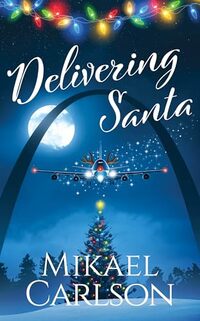 Delivering Santa (The Santa Trilogy Book 2)
Genre: Suspense, Action & Adventure, Contemporary Romance
Delivering Santa (The Santa Trilogy Book 2)
Genre: Suspense, Action & Adventure, Contemporary Romance
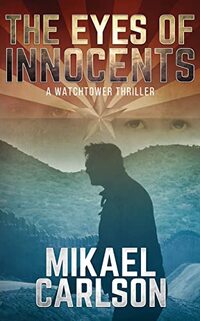 The Eyes of Innocents: A Watchtower Thriller (Watchtower Thrillers Book 2)
Genre: Crime Fiction, Thriller, Supernatural Suspense
The Eyes of Innocents: A Watchtower Thriller (Watchtower Thrillers Book 2)
Genre: Crime Fiction, Thriller, Supernatural Suspense
 Bounded Rationality (The America, Inc. Saga Book 2)
Genre: Thriller, Visionary Fiction, Science Fiction
Bounded Rationality (The America, Inc. Saga Book 2)
Genre: Thriller, Visionary Fiction, Science Fiction
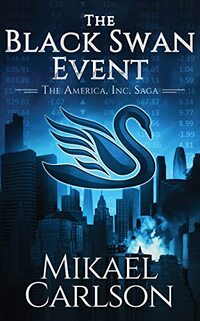 The Black Swan Event: A Dystopian Political Thriller (The America, Inc. Saga Book 1)
Genre: Thriller, Visionary Fiction, Science Fiction
The Black Swan Event: A Dystopian Political Thriller (The America, Inc. Saga Book 1)
Genre: Thriller, Visionary Fiction, Science Fiction
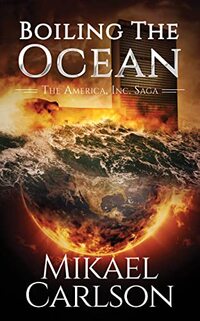 Boiling the Ocean (The America, Inc. Saga Book 3)
Genre: Thriller, Visionary Fiction, Science Fiction
Boiling the Ocean (The America, Inc. Saga Book 3)
Genre: Thriller, Visionary Fiction, Science Fiction
 The Eyes of Victims: A Watchtower Thriller (Watchtower Thrillers Book 3)
Genre: Crime Fiction, Thriller, Suspense, Supernatural Suspense
The Eyes of Victims: A Watchtower Thriller (Watchtower Thrillers Book 3)
Genre: Crime Fiction, Thriller, Suspense, Supernatural Suspense
 Banning Santa (The Santa Trilogy Book 1)
Genre: Suspense, Action & Adventure, Romantic Suspense, Romance
Banning Santa (The Santa Trilogy Book 1)
Genre: Suspense, Action & Adventure, Romantic Suspense, Romance
